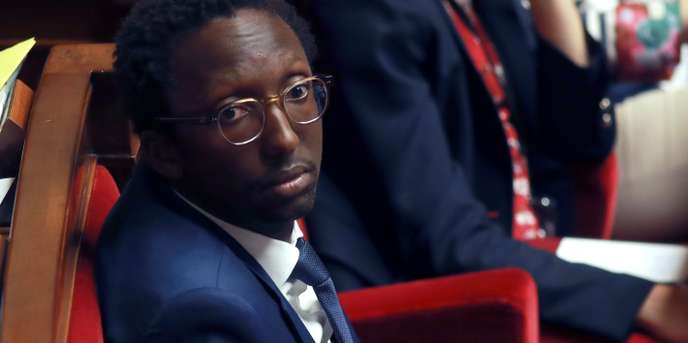Rwanda: Emmanuel Macron will Not Go to Genocide Commemorations

The deputy Hervé Berville, of Rwandan origin, will represent France at the “Kwibuka 25” ceremonies on April 7th instead of Emmanuel Macron
Officially invited by Paul Kagame, President of Rwanda, to participate in commemorations of the 25th anniversary of the Tutsi genocide, Emmanuel Macron will not travel to Kigali on 7 April. France, whose role in the spring of 1994 is subject to much controversy, will be represented by Hervé Berville, deputy of the second district of Côtes-d’Armor and spokesman of the Republic in motion (LRM) in Parliament.
The presence of this close friend of Richard Ferrand, president of the National Assembly, can be seen as a strong symbol. Aged 29, Herve Berville was born in Rwanda where he lost his parents before the genocide in which 800,000 to 1 million Tutsi and moderate Hutu were massacred in just one hundred days. Evacuated at the age of 4 by French soldiers, he was adopted by a couple living in the village of Pluduno (Côtes-d’Armor). There, between a boilermaker father and a laboratory mother, he learned to feel “French, Breton”, as he told the newspaper Libération, without ever having suffered racism during a “happy childhood” that he even qualifies as “pure Breton butter” .
“It’s a singular journey, but one of many, ” he adds in this portrait made in January 2018. The story of the country where I was born gives this weight and resonates, I understand this interest rather benevolent, but it must not be defined by me. “ Hervé Berville then studied at Sciences Po Lille and the London School of Economics, where he obtained an MA in economic history and specializes in macroeconomics. In 2013, he moved to Maputo, capital of Mozambique, where he worked for the French Development Agency (AFD). Two years later, he moved to Kenya where he became a program officer at Stanford University.
It was in the fall of 2015 that Hervé Berville embarked on politics, joining the Jeunes with Macron a few months after the launch of the movement. In the legislative elections of 2017, he won the seat of deputy of the second constituency of Côtes-d’Armor with 64.1% of the vote and becomes spokesman for the parliamentary group LRM, and a member of the Foreign Affairs Committee to the National Assembly. He is the author of a report on the modernization of the development policy and international solidarity that was submitted in August to the Prime Minister, in which he pleads the idea that “there is a formal political body deciding to allocation of official development assistance.
” Remember “
The absence of the French head of state or one of his ministers in Kigali may surprise. According to Jeune Afrique , it is because of “the proximity of the European elections”, scheduled between May 23 and May 26, Emmanuel Macron would not surrender to the official invitation. Commemorations “Kwibuka 25” (“remember twenty-five years ago” in Kinyarwanda, the language commonly spoken) are scheduled for April 7, the day after the attack on the Rwandan president’s plane Juvenal Habyarimana, triggering the massacres.
“The question is not necessarily the presence of Emmanuel Macron in Kigali, even if it would have been perceived as a symbol, says Fabrice Tarrit, co-president of Survie, an association that fights for a reshaping of France’s foreign policy. Africa. What we expect, more than a displacement, is that the highest French authorities finally admit the multiform support provided by the French state to the genocidaires. “
Since the end of the Tutsi genocide, relations between France and Rwanda have gone through several phases, in particular following the chapters of the investigation conducted in France on the death of Juvenal Habyarimana. In 2010, Nicolas Sarkozy was the first French head of state to visit the “land of 1,000 hills” since 1994. After a visit to the Memorial of the victims of Kigali, he recognizes “the errors” of France. “What happened here left indelible, unacceptable traces and forces the international community, including France, to reflect on its mistakes that prevented it from stopping this appalling crime,” he said, without however make excuses or repentance.
Since the election of Emmanuel Macron, relations between the two countries have warmed up again. In May 2018, Paul Kagame had been received at the Elysee Palace for the first time since 2011. This meeting followed another, organized on the sidelines of a summit on solar energy in New Delhi, and, six months earlier. at the last United Nations General Assembly in New York. The support of France to Louise Mushikiwabo, former head of diplomacy Paul Kagame, head of the International Organization of the Francophonie (OIF) appeared as a strong gesture of this rapprochement. Even if, since 2015, there is still no ambassador of France in Rwanda.
Enjoyed this? Get the week’s top France stories
One email every Sunday. Unsubscribe anytime.


